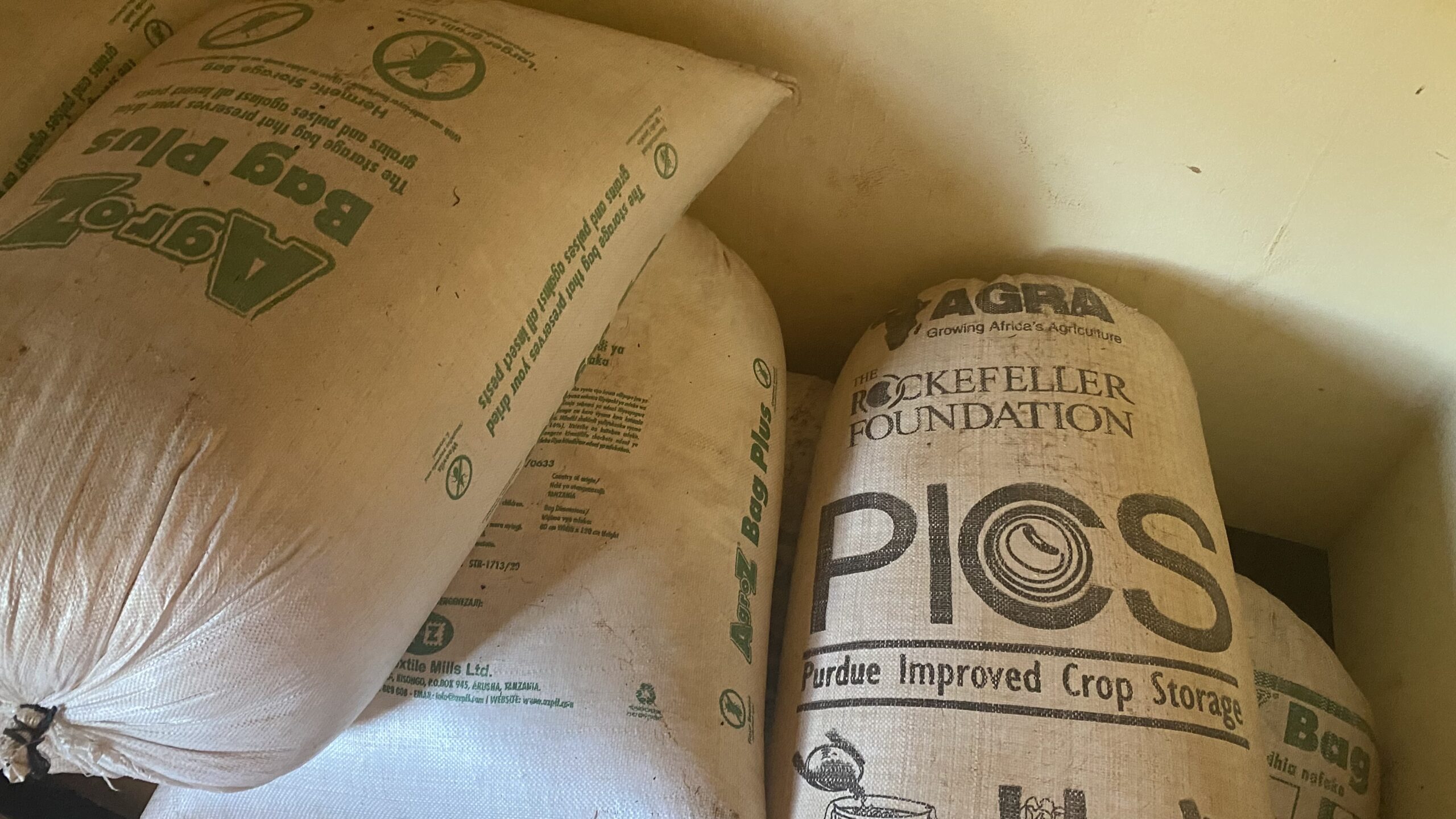
By Anthony Muchoki
It’s a hot sunny afternoon deep in Ibumila, a village nestled deep in the Njombe Region. Mrs Huruma Aron Mhapa lights a candle, and igniting a smile across her face.
The candle isn’t to celebrate her birthday, but it does mark the birth of a new beginning.
She says she has learnt something that will change her life as a farmer. “It is simple, but profound,” she says pointing to a silo sitting in the corridor leading to her sitting room.
Her semi-permanent4 bedroomed bungalow is immaculately clean, and powered with electricity provided by a biogas generator.
The silo is provided by RUDI (Rural Urban Development Initiatives), one of the implementers of a new project working to reduce post-harvest losses in Tanzania.
Through training and the use of improved inputs, farmers in Tanzania are harvesting more than ever, and this increased production is placing pressure on existing storage facilities. When farmers are unable to store their crops correctly, they can suffer from post-harvest losses, meaning the extra grain they have harvested can be lost to theft, pests and diseases.
Mhapa places the candle in the cover of her silo and meticulously closes the lid. She says yesterday they were taught that if you deny oxygen to dry grains like maize and rice, they become dormant.
“That candle will consume the oxygen inside the silo and automatically go out. Then my maize can be inside there, safe and secure for over a year,” she exuberates. The equipment is able to store 500 Kgs of maize.
“If there are parasites, they will all die for lack of oxygen, so we won’t have to use chemicals for storage. This new storage technology will change our lives…for the better,” she says.
She talks about how post-harvests losses, have been a way of life ever since she became a farmer in the 1980s.
“Soon they (post-harvest losses) might be a thing of the past,” she adds. What gives her confidence that the technology will work is the knowledge that, long ago, her grandparents used to store maize in watertight pots and it would outlast a season.
“Last season, I harvested about 50 bags of maize. Our farmers’ group only accepted 22 bags from me, which were sold to the government; leaving me with more than half of my harvest without storage or a buyer. Five bags have already suffered (from post-harvest losses) and can only be used as animal feed. Because of this, I had decided not to plant any maize this season,” she says.
Following a bumper rice and maize harvest, AGRA, working with the central government, regional and local government in Njombe, launched a pilot project to test three simple storage technologies, with over 4000 famers in the southern highlands.
According to AGRA Country Head Dr Mary Mgonja: “the project will test three portable storage solutions – cocoons, silos and PICS bags – to identify which are most suitable for providing short-term storage needs for smallholder farmers and how to increase the adoption by farmers of the technologies.” The silos and PICs bags are made locally.
The project, funded by the Rockefeller Foundation is being implemented by RUDI, BRiTEN and CSDI.
“Tanzania in 2013/14 harvest season has experienced surplus maize and rice production and currently National Food Reserve stores are saturated, creating an urgent need for storage facilities,” she notes.
Research funded by AGRA estimates that Tanzania sometimes faces post-harvest losses as high as 40 per cent for some crops.
End
